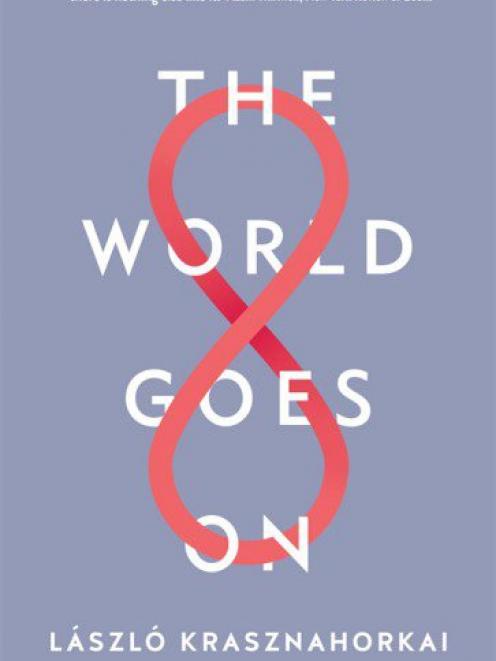Peter Stupples reviews The World Goes On by Laszlo Krasznahorkai, published by Tuskar Rock Press.

He has written screenplays for films of five of his novels and has received numerous prizes and awards.
The World Goes On, first published in Hungarian in 2013, is a collection of 21 stories, each unique, but all thematically linked, creating a single kaleidoscopic image of our age. The first nine are written as first-person narratives, the following 11 in the third person. The final story consists of 79 paragraphs of blank pages but with a rich panoply of footnotes.The text is always monologic. The speakers/writers are generally intent on trying to shift from their present circumstances into another space. In "Wandering-Standing", for example, the place from where the frantic speaker seeks escape is "intolerable, cold, sad, bleak, a deadly weight". Though the place in each story often is, or feels, Eastern European, in other stories it shifts; to India, Portugal, Shanghai. But wherever the voice is, he (and it is always "he") finds it unbearable and cannot find a way out; a common experience of dream worlds.
In "Nine Dragon Crossing", a simultaneous interpreter, who has always wanted to see one of the world’s greatest waterfalls, instead finds himself in Shanghai, a city with none. After days of interpreting, he gets drunk and wanders the crowded city centre before becoming marooned on a pedestrian overbridge at Nine Dragon Crossing, a monstrous spaghetti junction from where he can find no way back to his hotel. Was that all a drunken nightmare? Knowing he will never see the waterfalls of his desire he flies away the next day, "high above the clouds — in the blindingly blue sky towards the hope that he would die some day".
There is no escape either for the man incarcerated in "Universal Theseus", who gives three lectures — on "Melancholy", "Revolt", and "Possessions" — to a silent, anonymous audience.
"It had occurred to me that possibly you are mistaking me for someone else. You had intended to invite a certain person, but he wasn’t available, and only because of that did you select me, because I am the one who most reminds you of that person.
"You are not saying anything. Fine, it’s all the same to me.
"Mr President, gentlemen — I shall speak about melancholy."
And indeed "melancholic" is the overall tone of the stories — not angry, not sad, certainly not happy or romantic. Yet, paradoxically, it is often very funny. In "On Velocity" a man tries to run from East to West faster than the orbit of the planet: in "That Gagarin" the first astronaut, after returning from his circumnavigation of the Earth, during which he saw "paradise", becomes an alcoholic because no-one will believe his account of his experience.
The melancholic humour rising through the agony of the text, tasks the reader to enter a new realm of reading: Samuel Beckett, W.G. Sebald, Malcolm Lowry come to mind. A mystical, cerebral, playful, philosophical delight.
- Peter Stupples, now living in Wellington, used to teach at the University of Otago.











